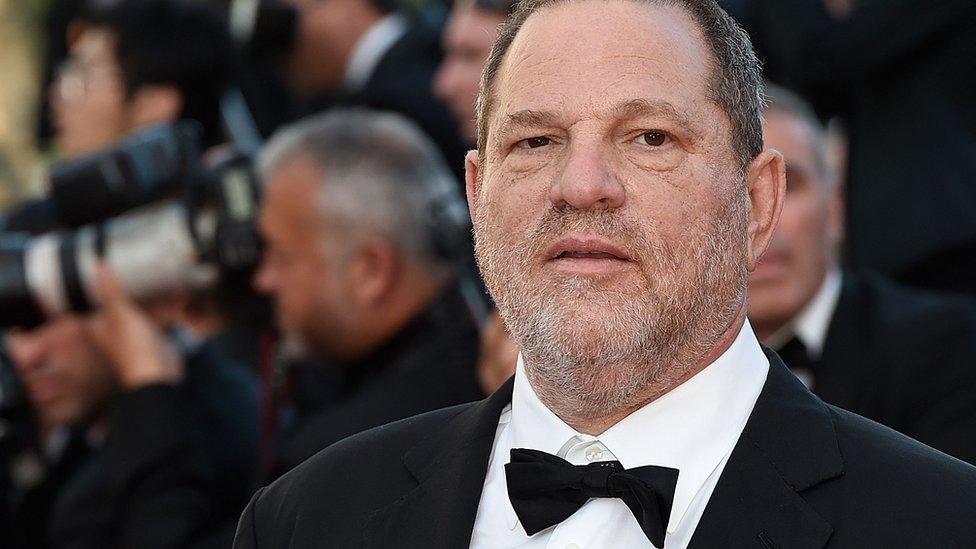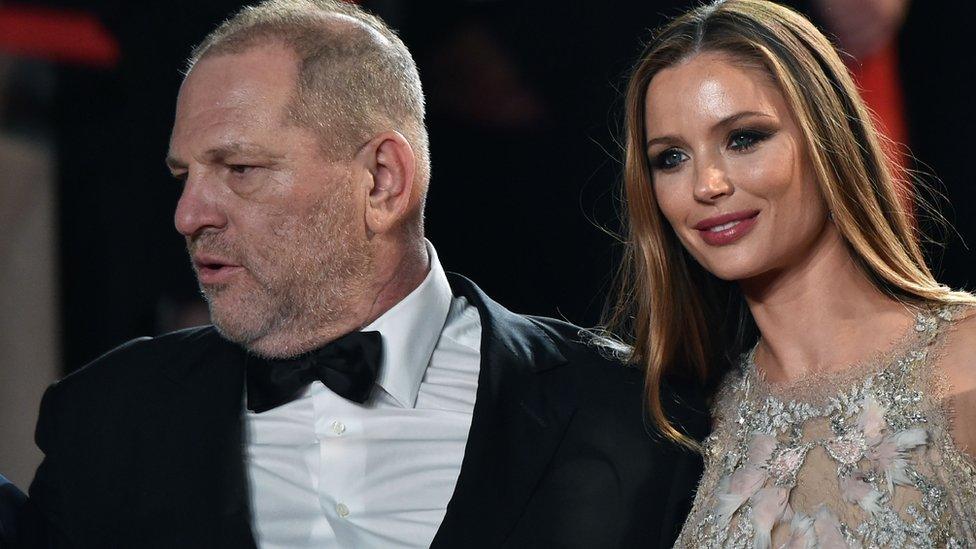Weinstein and the media's shame
- Published

Harvey Weinstein, the Oscar-winning film producer accused of sexually harassing female employees, has been fired by the board of his company.
Harvey Weinstein has denied many of the allegations against him, but in such a convoluted and incoherent manner that it is not too soon to conclude his behaviour over the course of a storied career has, at times, been disgusting.
Now that he has been sacked by the company named after him and his brother, a cascade of allegations is swirling and many people who have been loyal to him over the years are suddenly questioning why they bothered.
It is hard not to see the allegations against Weinstein in the light of similarly tawdry claims made against the late Fox News boss Roger Ailes, Fox News anchor Bill O'Reilly, comedian Bill Cosby, and even the President, Donald Trump, who - we should remind ourselves - stands accused of sexually exploitative behaviour by many women. Those allegations are unproven and Trump denies them.
Changing attitudes to the behaviour of powerful men are driving a cultural shift, which most people will consider long overdue if it means that bullying and intimidation in exchange for sexual favours is no longer so widespread.
I wonder too if the advent of social media is making more women feel able to speak out: perhaps the capacity for an accusation to go viral, and so garner both attention and support from a vast global audience in a matter of seconds, incentivises honesty where women might previously have feared the consequences of speaking out.
But it would be a dereliction of duty to ignore that these allegations are pouring forth from the American media and creative industries.
Hiding in plain sight
The painful fact is, many, many people were aware of Weinstein's behaviour for years. He was, as the saying goes, hiding in plain sight, no doubt protected to some extent by his friendships with famous people and his ability to hand out internships to the likes of Malia Obama (who as far as we know was treated with the utmost civility). That he was a major supporter of Hillary Clinton will have done him little harm, too.
Weinstein was also protected by sheer force of character. The few times I've met him in New York he was declaiming at a party, raconteuring his way through Manhattan's most starry joints, a sun around which other stars would orbit. It's pathetic, of course, but one reason those who knew about his sordid malefactions didn't speak out is because he was their host, and they enjoyed his parties.
There is outrage in American media circles now - though many would say it pales in comparison to the outrage that attended the claims of rampant sexual harassment at Fox News. To that extent, this scandal - revealed by that other icon of liberal America, The New York Times - is in fact a test of liberal America. If late night TV hosts and their boosters in the media don't pour the same opprobrium on Weinstein as they have on, for instance, O'Reilly, they could stand accused of double standards.

Harvey Weinstein with his wife Georgina Chapman
Why are all these scandals erupting in the media? There's no firm evidence that sexual intimidation is more prevalent in, say, Hollywood than Wall Street. But if - and it is a big if - it is, I wonder if that's because the likes of Weinstein are part of an economy within an economy in the creative industries: they buy and sell fame.
Weinstein was the kind of man who used his power to be a gateway to both financial riches and fame: he controlled access to huge audiences, with all the money that can bring. If some of the claims made by actresses are true, it may be that Weinstein was - unforgivably - allowed to get away with it because of his power. Not just his power to make people very rich; also, his power to make them very famous.
That's the same power Roger Ailes had. Do this sexual favour for me, his sick argument allegedly went, and you'll have a better chance of ending up on screen.
If more women feel prepared to speak out, and fewer lecherous men are allowed to get away with exchanging sexual favours for fame and riches, some good may yet come from the turpitudinous exploits of Harvey Weinstein and his ilk.